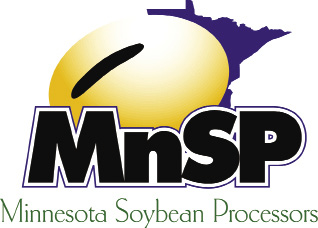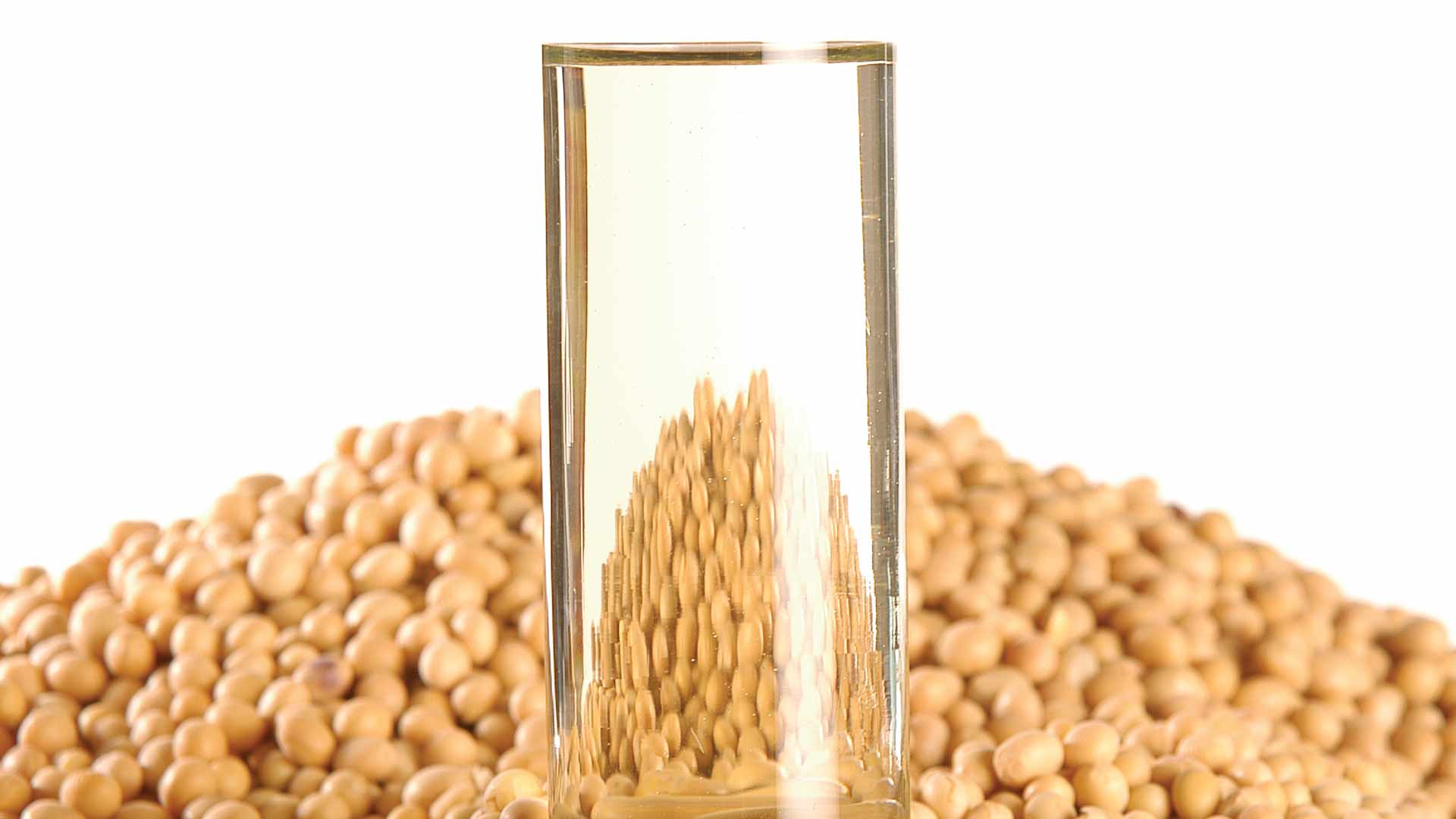–by Jonathan Eisenthal
Minnesota farmers plant around seven million acres of soybeans each year, and a major part of the crop’s attraction is its value-added products like biodiesel and glycerin that increase the worth of the commodity and create additional revenue  streams for processors
streams for processors
Minnesota Soybean Processors (MnSP) in Brewster recently worked with AURI to study whether refining glycerin would be a good fit for their company, which crushes soybeans in order to produce value-added products like soybean meal, soybean oil, biodiesel and crude glycerin. MnSP has historically sold that crude glycerin to the animal feed industry. However, refined glycerin is a much higher value item.
AURI awarded MnSP a cost-share grant in part to hire Bob Carlson, an agribusiness consultant with decades of expertise in oilseed processing and products. His study has encouraged the company to move forward with engineering studies for an $8-10 million facility.
In addition to the cost-share assistance, AURI’s scientists have provided MNSP with analytical services related to analysis of their glycerin as well as to their biodiesel operation.
“Within the Minnesota Soybean Processors board there is a lot of excitement about the idea of adding glycerin refining,” says Taryl Enderson, general manager of MnSP. The first economic analysis finds the refinery will add approximately 20 cents per bushel processed.
“With annual production of 30 million gallons of biodiesel, MnSP can refine 36 million pounds of glycerin and increase their revenues,” says Denny Timmerman, the AURI senior project development director who is working with MnSP. “AURI is charged with finding ways of adding value to agricultural commodities, and this is a nice way of doing that.”
Carlson’s analysis found that MnSP would realize the best return for its investment by refining glycerin for the manufacturers that use it to produce lotions, soaps, toothpaste and a host of other personal care products, as well as pharmaceuticals and “green” chemicals, such as biobased antifreeze. Among other characteristics, glycerin is slightly sweet and yet doesn’t promote tooth decay. The glycerin gives these products their smooth texture.
 US manufacturers currently import about half of their refined glycerin needs, and analysts believe the market will grow five percent per year for the foreseeable future.
US manufacturers currently import about half of their refined glycerin needs, and analysts believe the market will grow five percent per year for the foreseeable future.
“We have an aging population, dealing with aging skin and consuming more and more personal care products each year,” says Carlson.
The crude glycerin is worth about eight to 10 cents per pound while the refined product goes for anywhere from three to five times that amount. BASF, Dial soap, Colgate-Palmolive, Proctor and Gamble and Dow Chemical are among the major consumers of refined glycerin.
“Cargill and ADM both refine the glycerin that they produce at their biodiesel plants,” Carlson says. “This is a logical step in the vertical integration of the business. Soybeans produce soybean oil, which is used to produce biodiesel, of which crude glycerin is a low-value by-product that can be converted to a higher-value refined product.”
MSP began crushing soybeans for meal and oil in 2003 and added biodiesel production in 2005. The plant can crush 110,000 bushels of soybeans per day, and between the MSP plant and another company’s facility in Fairmont, soybean producers in southwest Minnesota enjoy a premium of $0.15 to $0.35 cents thanks to local demand. “AURI is a big value for us, and has been for us since MnSP started up,” Enderson says.
“AURI is out there looking for niches for our ag businesses to go into. They are sifting through, developing very useful information for us on an ongoing basis. For a value-added cooperative that’s a big help.”
AURI and Partners
Minnesota Soybean Processors wanted to know if a glycerin refinery plant was economically feasible and would add value to the soybeans they crush.
AURI’s role:
AURI provided cost-share assistance as well as networking connections to help MnSP hire Bob Carlson, an agribusiness expert who conducted a feasibility analysis.
Outcomes:
The feasibility analysis showed that refining the glycerin that is a byproduct of the soybeans MnSP crushes for biodiesel would increase the value of the glycerin by three to five times.
Partners:
USDA, Minnesota Soybean Growers Research & Promotion Council.
